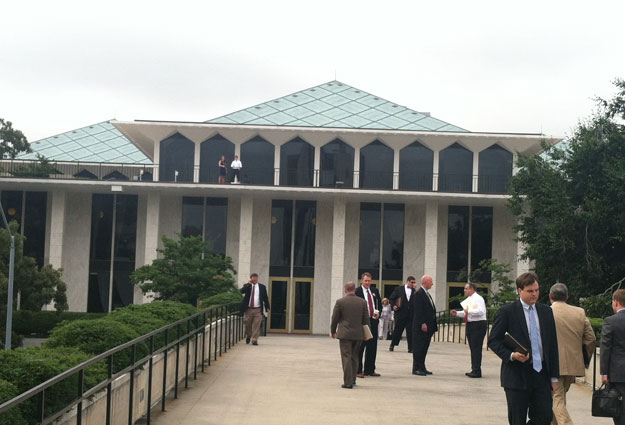North Carolinians will have to wait for a ruling on whether a federal judge will block a portion of the state’s controversial House Bill 2, which advocates continue to call the worst piece of anti-LGBT legislation in the nation.
Lawyers from the United States Justice Department and the American Civil Liberties Union argued for a preliminary injunction blocking the provision of HB2 that calls for transgender individuals to use the bathroom that corresponds with their birth certificate rather than their gender identity, according to the Associated Press.
The arguments were made before U.S District Judge Thomas Schroeder in Winston-Salem.
Supporters of the law maintain that it is “common sense” legislation that protects North Carolinians.
Joaquín Carcaño is a 28-year-old employee of UNC – Chapel Hill and is a transgender man. He is also the lead plaintiff in the case.
“All I want is to use the appropriate restroom in peace, just like everyone else. It’s humiliating that this law separates me from my peers and treats me like a second-class citizen,” Carcaño said in a release.
“Each day, Joaquin, Payton, Hunter, and other transgender people in North Carolina are dealing with the humiliation of being singled out by this harmful law in school, at work, and in other public places because all they want to do is use public facilities safely,” said Tara Borelli, senior attorney with Lambda Legal. “We’re in court today because by requiring people to use restrooms that do not correspond to their gender identity, North Carolina not only endangers and discriminates against transgender people — it also violates federal law.”
“Every day that House Bill 2 remains on the books, transgender people in North Carolina remain in the perilous position of being forced to avoid public restrooms or risk violation of state law,” said Chris Brook, ACLU of North Carolina legal director. “This cruel, insulting, and unconstitutional law targets transgender people in North Carolina and causes irreparable harm. It must be put on hold while it is reviewed by the court.”
The arguments on Monday focused on the bathroom provision of HB2. The law also prohibits localities from extending nondiscrimination protections beyond the state policy. Local governments are also barred from increasing the minimum wage due to HB2.
A trial over the full legislation is scheduled for November, the Monday following Election Day.
There is no timeline for a decision from Schroeder on the motions argued Monday.
Schroeder is the same judge who ruled North Carolina Voter ID law was constitutional earlier this year. That ruling was overturned by the United States Fourth Circuit Court of Appeals last week.





Comments on Chapelboro are moderated according to our Community Guidelines